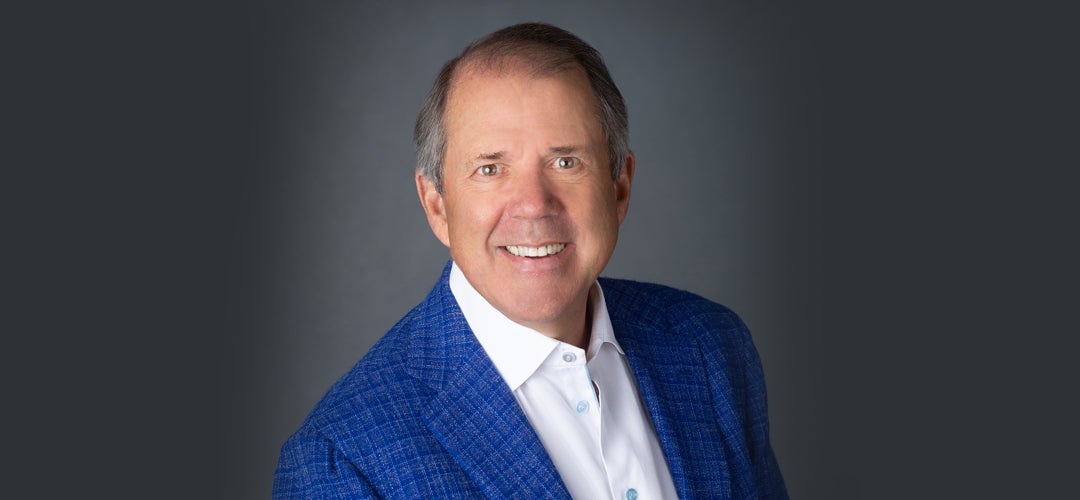Campo will receive the 2025 Stephen L. Klineberg Award for outstanding civic leadership at the 2025 Kinder Institute Luncheon on May 19. Ticket sales close May 7.
In 1982, Campo and Keith Oden co-founded Camden Property Trust, which has grown into a national multifamily housing company. In 1997, Campo was elected as treasurer of the founding board of the Harris County-Houston Sports Authority, where he was central in financing the construction of Daikin Park (formerly Minute Maid Park), NRG Stadium and the Toyota Center.
In January, he was unanimously reappointed as chairman of the Port Commission of the Port of Houston Authority. Campo also serves as president of the state-appointed school board overseeing Houston Independent School District.
Campo has also served as chair of Houston First Corp., and as a member of the board for BakerRipley, Central Houston Inc., the Houston Branch of the Dallas Federal Reserve Bank, the Coalition for the Homeless of Houston/Harris County and the Greater Houston Partnership.
The Urban Edge interviewed Campo about the interconnection of education, housing and other factors that will shape Houston’s future. The interview has been edited for length and clarity.
How has Houston changed since you began working here in 1976? What steps can it take to continue evolving with its bicentennial approaching in 2036?
Campo: When I got to Houston about 50 years ago, it was a booming city but much smaller. It had all the same issues that Houston has today, like traffic and affordability issues. It just wasn’t as big, and we’ve kept growing. Houston is just one of the most amazing cities, because it doesn’t matter where you are from or who you are. You can make things happen. That’s unique. If you go to a lot of other cities, it’s who’s who that gets things done, and that’s why they don’t get as much done as Houston does.
As Houston approaches its bicentennial, there are a lot of big projects that are going to get done. Houston still has the same can-do attitude that it has always had. Some of our secret sauce allows us to continue to evolve and invest in infrastructure, continue to move the ball forward in creating a more livable and workable place to be.
What measures could the Houston area take to improve housing affordability?
Campo: We have to continue to focus on economic development. We have to grow income, or have to lower the cost of housing. Growing income is what we should focus on the most. That’s making sure we have a very strong economic environment, strong recruiting and making sure those jobs are high-quality jobs. That’s both primary and secondary education issues. I’m not saying everybody has to go to college, either. But if you graduate from high school, you better know how to read, you better be able to do math, you have to have certain problem-solving skills and be a critical thinker. We’re behind in some of those areas.
What interested you in serving on the Houston ISD school board? Why is it important for our region to have a strong educational foundation?
Campo: I became interested in education because our economy is based on replacing workers that are retiring, and making sure that we have enough people to employ that we need. We have to create the workforce of the future today. When we talk about issues like housing, for example, and we ask, why do we have so many people that can’t afford housing? When we discuss many social issues that we have, it all boils down to poverty. The only way out of poverty is education. The more educated you are, the more options you have and the more ability you have to create value for your family.
You were instrumental to bringing Super Bowl LI to Houston in 2017. In retrospect, how do you feel an event of that scale was able to showcase Houston?
Campo: When you think about Houston as a destination, no one moves to Houston because they’ve read about it in a magazine. People moved to Houston because they’ve been here. The Super Bowl is the largest stage in the world. … The whole sports aspect of a city is about quality of life and economic development. That Super Bowl turned out to be a great weather day, and one of the best NFL games ever. It’s all about how do we make our region better? What are the key issues if you’re going to be a world-class city? Sports are a component in that. Sports create a common language that transcends social status.
During the COVID-19 pandemic, Camden employees and residents received financial assistance under your leadership. Why was it important to you to lend a helping hand during a trying time?
Campo: COVID was a great opportunity to show that you have to take care of people first and the people that work for you first. People hate uncertainty. It makes them nervous, and they’re not really productive when they’re uncertain and upset. We made sure that our employees were ready to assist our residents. Since people were at home during COVID, our employees had to work harder and smarter. We gave frontline bonuses to our employees, and we decided we were going to make a big push to help our residents. We came up with a grant program that started out with $5 million, but the total ended up being about $10.5 million. We said to residents to just ask for what they need and why they need it, up to $2,000. We satisfied every request. We didn’t verify if they lost their jobs, or asked for people to show us their pink slips. We just wanted to help residents and tell them that we were here for them.
What do you believe are the biggest challenges facing Houston at this time, and what are some potential solutions?
Campo: I don’t think the challenges are any different than they’ve always been. We’re growing, and we continue to grow. The challenge with that growth is that we’re always growing faster than our infrastructure can keep up with. We’re always going to be facing challenges. We just have to keep our entrepreneurial spirit, our can-do attitude and focus on the future. Solve one problem at a time, and move on.
Is it going to be nirvana some day? No. There will just be new issues to deal with. That’s why we need places like the Kinder Institute to give us the data, so we can figure out what the real story is and then create solutions. We need to keep entrepreneurial people who are starting companies, adding jobs and solving those issues.
You have varied experience in real estate, logistics and serving on numerous boards that focus on strengthening Houston’s economy. How can all these facets intertwine to make Houston an equitable city?
Campo: When you think about all the different components of Houston, there are people that are really good at what they do. They really focus on what they do. The institutions we have are strong, smart and reasonably well-funded. That allows us to create a lot of value long-term. You just have to work on it every day, one day at a time, one person at a time, and one issue at a time. Everything connects together and we have to always think about how we can help people do better and improve their lives. If people are improving their lives, then they’re going to create more value for everyone. You start with education, and then you keep going.


